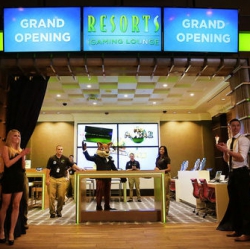Details of the Division of Gaming Enforcement’s investigation into PokerStars have emerged after the DGE released a report Friday. According to the regulatory agency for gambling in the state of New Jersey, its regulators reviewed 45,000 financial and business documents while conducting interviews on two continents to determine whether the top Internet poker brand should be allowed to enter the New Jersey gaming market.
The in-depth investigation took over a year to conduct. At several points during that year, State Senator and possible NJ governor candidate Ray Lesniak has criticized Chris Christie and his administrators for dragging out the process, claiming it was to appease Sheldon Adelson of Las Vegas Sands. David Rebuck claims it was because other U.S. officials–and international officials–would look to New Jersey’s investigation when making their decisions on PokerStars.
Purging Former Executives
One of the key reasons for such scrutiny was to determine whether the former owners and executive staff had been “purged” from the company’s operations. The probe went beyond personalities. The DGE’s investigators focused on whether PokerStars’ “practices” had been changed since the former owners left the company.
Amaya Gaming, a gaming software company based in Montreal, bought Rational Media for $4.9 billion in August 2014. Rational Media is the owner of PokerStars and Full Tilt Poker, two of the largest communities of card players online. Amaya, which has 60 licenses in the United States, made it known at the time that it hoped to bring PokerStars in the United States market, which had been a source of frustration for the previous owners of the company.
Black Friday Concerns
At heart of the reluctance of U.S.-based officials to approve PokerStars is its connection to the Black Friday scandal. In April 2011, the U.S. Justice Department seized the domains of PokerStars, Full Tilt Poker, and Absolute Poker, which were three of the leading poker sites on the Internet. US officials accused the companies of a mass money laundering scheme to hide the fact they were accepting real money play from American gamblers.
11 executives were indicted, while the companies eventually paid hundreds of millions of dollars in fines. Lawmakers in Pennsylvania and California have suggested banning PokerStars from their online gaming markets, if they ever pass such laws. That was never much of a consideration in New Jersey.
The Division of Gaming Enforcement report described how the suitability decision was arrived at. The DGE wrote, “While the PokerStars entities operated in violation of the law between 2006 and 2011, a number of considerations–including the severe criminal and civil sanctions imposed by the federal government, the complete and irrevocable separation of the previous owners and almost all of the former executives, the acquisition of the assets by Amaya and their incorporation into a robust compliance and control environment, as well as significant changes in the Internet gaming market since 2011–lead to a finding of suitability.”
Amaya Gaming Probe
The DGE’s Acting Director David Rebuck said his agency also probed the insider trading concerns surrounding Amaya Gaming in Canada. Canadian authorities were concerned that insider trading might have happened prior to the Rational Media deal. The DGE looked into the matter and interviewed people associated with the transaction, but eventually found that no wrongdoing had occurred.
Impact on New Jersey
The impact of PokerStars’s entry into the New Jersey is expected to be significant, though experts cannot agree on exactly how significant the new revenue stream will be.
To this point, Borgata and Caesars Interactive have been the leading online gaming companies, but neither has been able to grow online poker into the kind of moneymaker online casinos are in New Jersey. It is thought PokerStars is likely to dominate the Internet poker industry fairly significantly.
Whether the PokerStars/Resorts casino partnership will be able to translate that into online casino sales is still up for question. One suggestion last week was the Full Tilt Poker operation might involve online casinos, instead of a second poker site. Either way, it would take a time to build up a customer base, because all gamblers must be residing inside New Jersey before playing. Those gamblers will have access to the wider PokerStars community, which means more games and bigger jackpots.

